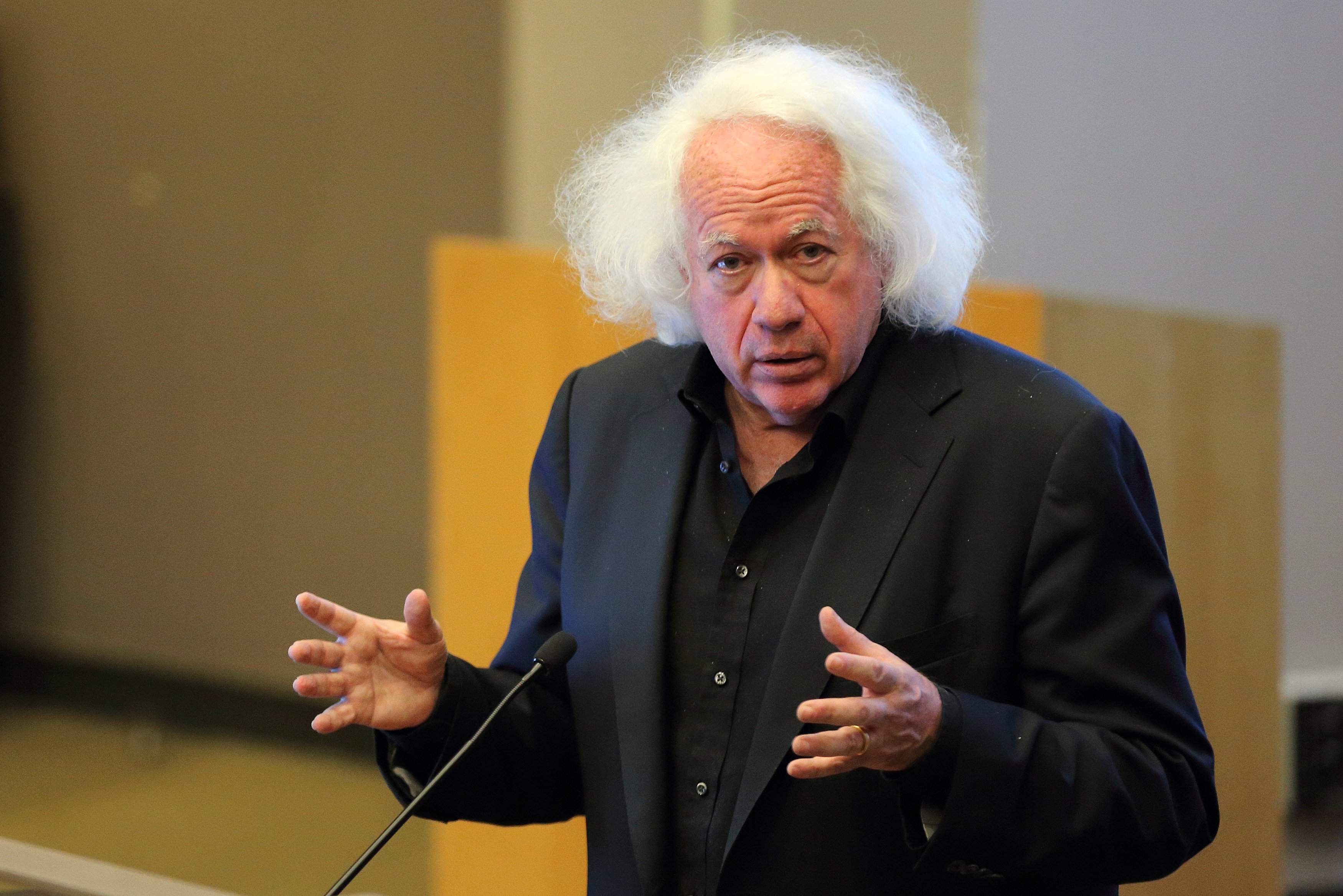 Leon Wieseltier
Leon Wieseltier U.S.
FP’s Robbie Gramer and Dan De Luce take a look at the elimination of the State Department’s sanctions office:
Sanctions have become a pillar of U.S. foreign policy, and the Trump administration has touted them as a pivotal tool to counter regimes in North Korea and Iran. Wherever sanctions policy is managed inside Foggy Bottom, the State Department has a pivotal role in determining whether sanctions actually work.
“You can churn out all the sanctions you want,” Fishman said. “But if you don’t have diplomats around the world pounding the pavement every day to get allies on board, they won’t be effective.”
Aaron David Miller and Richard Sokolsky try to explain why Syria is not a vital U.S. interest:
America can neither transform Syria nor walk away from it. Washington needs to accept the cruel reality that its role will likely be limited. Indeed, Syria is not going to emerge as a stable pro-Western polity in the orbit of or even significantly influenced by Washington. Instead, others who have the will and skill to invest there will dominate. The Trump administration would be well-advised to recognize that Syria is not (and never will be) a level playing field for the United States. Several challenging features define the operating terrain for Washington. The United States needs to acknowledge these realities for one simple reason: We will fail if we do not.
Israel
Sima Kadmon believes that Netanyahu’s decision to nix talks with the Palestinian Authority is another attempt at being perceived as more right-wing than Naftali Bennett:
The cabinet decision reflects Netanyahu’s attempts to atone for the decline in his status among the Right since the Temple Mount fiasco. He is repeatedly launching right-wing missiles into the air, knowing that none of them will hit their target—but that they’ll all make noise. This includes, for example, his demand for a parliamentary commission of inquiry into the funding of left-wing NGOs, which was hindered by the Knesset’s legal advisor last week. What we are seeing here is a right-wing noise machine, like the rubble crushers.
Netanyahu apparently believes that if he keeps launching right-wing initiatives—even if they have no chance of succeeding—he will be seen as right-wing.
Mazal Mualem discusses the chilly welcome given to Israel’s new Supreme Court chief:
One thing is certain. The right-wing governments of the past few years have contributed to the erosion of the Supreme Court’s stature among the public. Its denigrated justices are forced to contend with explosive decisions left at their doorstep, often because of the political system’s weakness. This is what happens whenever the issue of evacuating settlements comes up.
Hayut’s inauguration ceremony shined a spotlight on the intensity of the rift between the three government branches and the rapidly escalating war between the Supreme Court and the right-wing politicians seated around the Cabinet table.
Middle East
Richard Kemp, Lord Richard Dannatt and Klaus Naumann discuss Hezbollah’s terror army and how to prevent a third Lebanon war (video):
To change Hezbollah’s calculus and avoid playing into the group’s hands, Western governments should reconsider their reactions to Israel’s justifiable military and counterterrorism operations — and to the terrorist attacks that spur those operations in the first place. Unfortunately, European governments are often more concerned about appeasing Arab countries in such situations. This mindset will persist so long as officials view terrorism directed at Israel differently from terrorism directed at other countries.
Doug Bandow examines President Erdogan’s long-term effects on Turkish-American relations:
The Erdogan presidency is a great tragedy. The principal victims of the new sultan’s misrule are Turks. But he also has destroyed the pretense that Ankara and Washington are united in a valuable alliance worth preserving. The United States increasingly must defend America’s interests and values from Turkey. That includes preserving the rule of law at home and standing up for those unjustly imprisoned abroad.
Jewish World
Dara Horn writes a lovely piece about Yiddish poet Avraham Sutzkever’s great 1936 work Siberia:
Sutzkever’s Siberia is pure joy, deepened by sorrow but untouched by irony. And the Holocaust neither created nor destroyed this joyous artist’s work. Here already are the themes of time stopping, the eternally present past, and the ongoing possibility of wonder, painful and joyful and triumphant [that one finds in his later work]. The live wire of imagination races through the poet’s awful, wonderful life, as tortured and inspired and indestructible as the Jews—neither innocent nor ironic, but abidingly true: a joy to the world.
Michelle Cottle examines the Leon Wieseltier misconduct affair:
I have perhaps more “Leon stories” than some of my former colleagues, well over a dozen of whom I have been talking with as the accusations have boiled over into the public sphere. Everyone’s experience was unique, of course. But many—and what has been eye-opening is just how many there are—share striking similarities. And on one point, almost everyone seems to agree: With Leon, things were complicated.






















 More news and opinions than at a Shabbat dinner, right in your inbox.
More news and opinions than at a Shabbat dinner, right in your inbox.